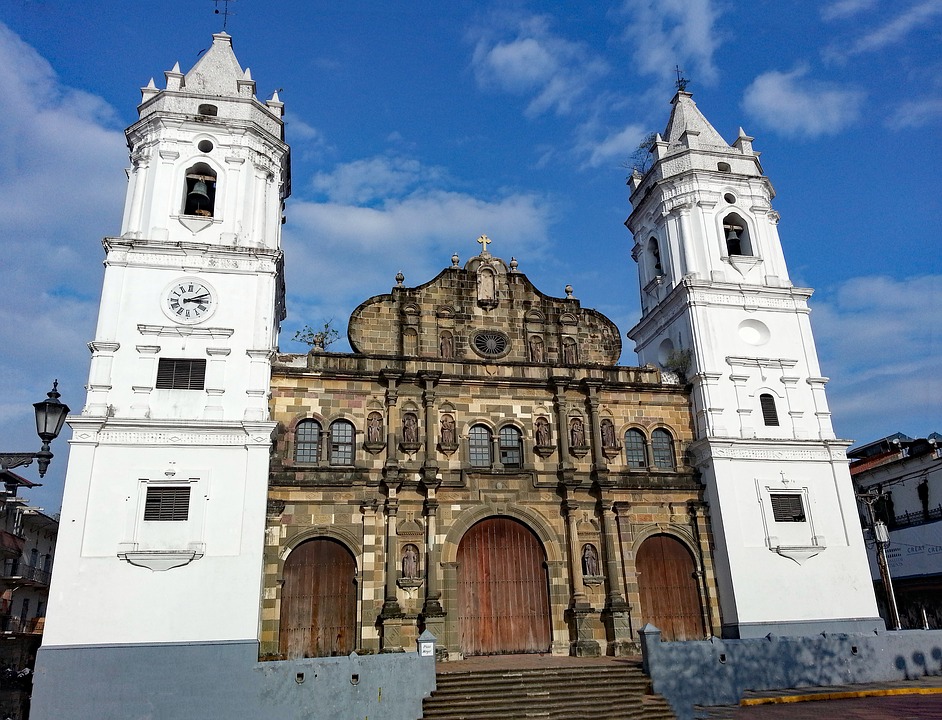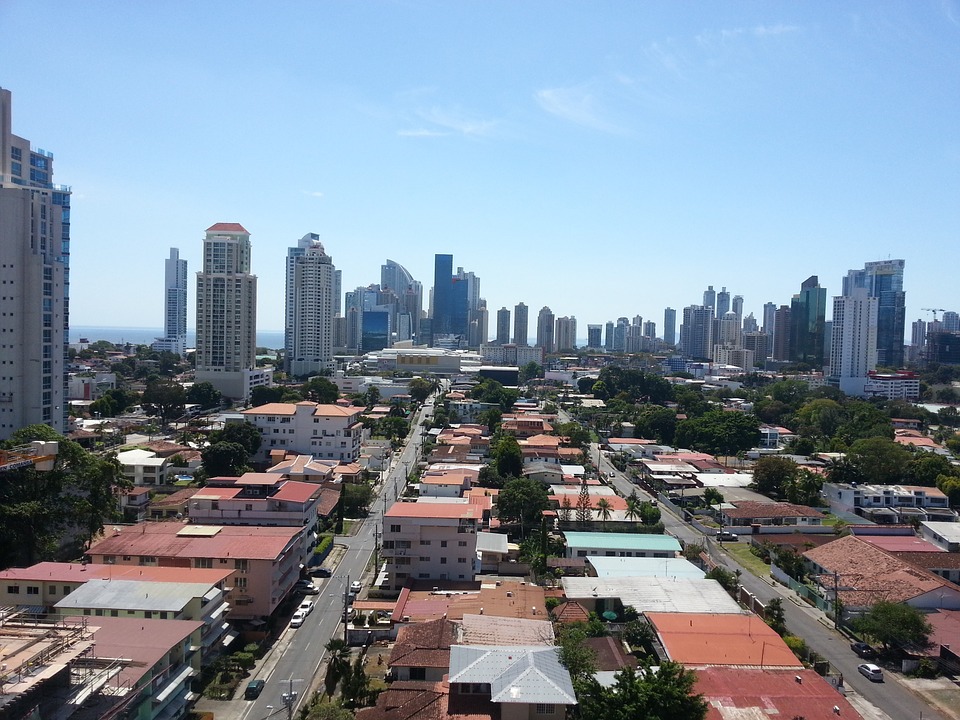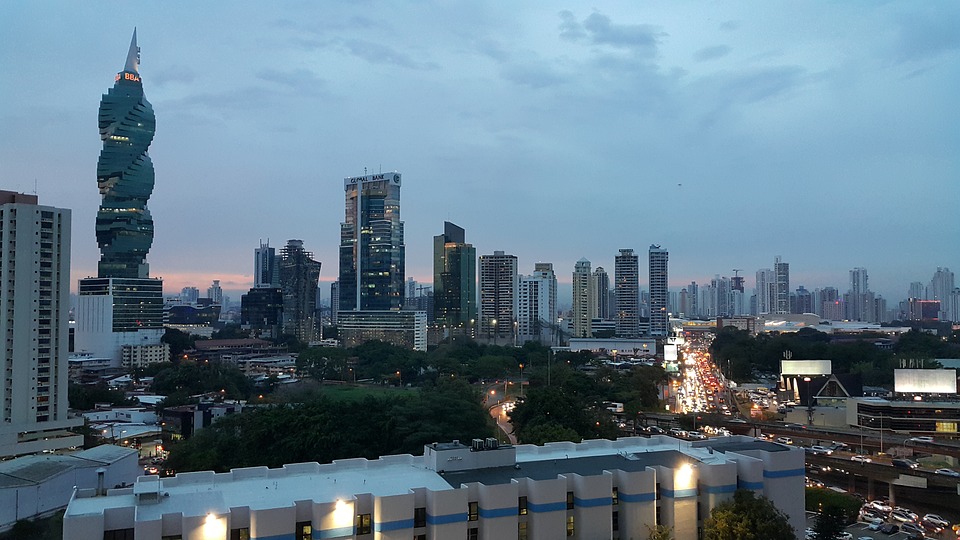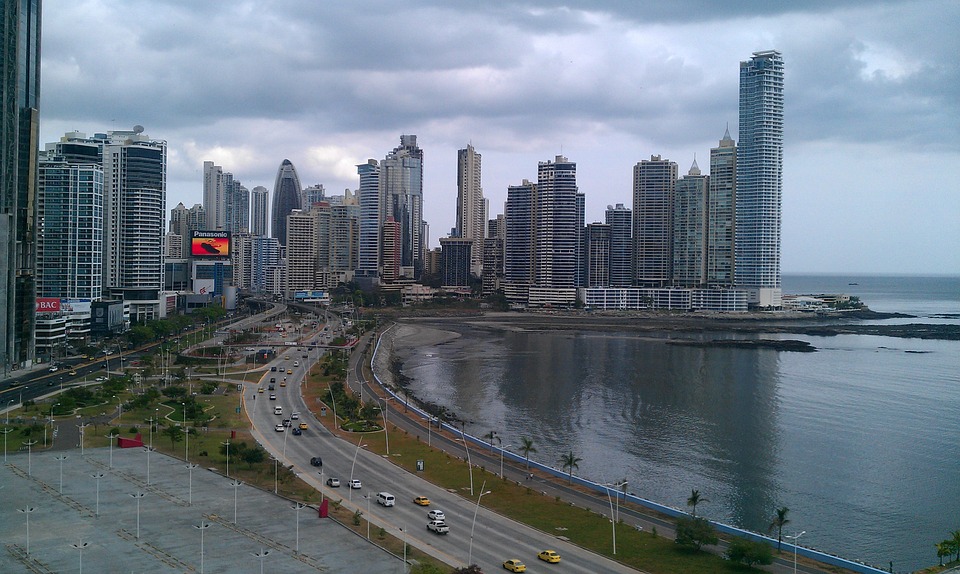| QUICK FACTS |
|
|
| Location |
Panama City, Panama |
| Academic Term |
Autumn Semester / Spring Semester |
| Credits |
16 semester credits per session |
| Prerequisites |
Previous coursework in environmental studies, ecology, biology, or related fields. |
| Program Manager |
Shannon Quinn | studyabroad@uw.edu |
| Application Deadline |
May 15 (Autumn Semester)
Nov 1 (Spring Semester) |
| Financial Aid |
All accepted students can apply for need-based and scholarships, grants, and loans. Students can also apply for the SIT Pell Grant Match, which provides matching grants to all students receiving Federal Pell Grant funding. |
| HIGHLIGHTS |
| General |
Explore rain forests, coral reefs, highland canopies, and coastal mangroves as you study tropical conservation and ecology in one of the world’s most ecologically diverse countries. |
Study tropical conservation in one of the most biodiverse and complex ecosystems in the world. Conduct extensive fieldwork in mangrove forests, threatened seagrass beds, and pristine coral reefs.
WHAT MAKES SIT UNIQUE
SIT Study Abroad offers a field-based, experiential approach to learning.
Each program has a small group of students (typically 10–35).
SIT students gain access to many different stakeholders and experts relevant to the program-specific issues.
Incorporates extensive out-of-classroom learning through excursions to field stations, NGO headquarters, more.
Many students use their Independent Study Projects as a basis for senior theses on their home campuses.
Many students use this experience to successfully apply for fellowships such as Fulbrights and Watsons.
CONNECT WITH SIT
Visit the SIT website
Call the Admissions Counselor at (888) 272-7881
Email studyabroad@sit.edu
Read updates from the field on the SIT Blog
Follow CET on Facebook, Twitter, and Instagram
Watch student videos on YouTube
Site
Panama City is Panama's capital and largest city. Experience rural customs in the midst of booming international banking and trade businesses; hone your Spanish skills through daily practice; and gain valuable exposure to Panamanian traditions and culture. As one of the leading base locations for international NGOs and the United Nations, Panama City offers many opportunities for exploring environmental and conservation issues and initiatives.

Prerequisites and Language Requirements
Students participating in this program must have completed some courses in environmental studies, ecology, biology, or related fields. In addition, they are also encouraged to have taken some Spanish courses prior to arrival.
Credits and Conversion Scale
You will approx. receive 24 UW credits per term. How our office will determine the amount is through our Credit Conversion Scale for the program.
If you would like some assistance, schedule an appointment with one of our Program Assistants here.
Program Structure
There is no "typical day"on an SIT program. Activities may take place on any day of the week and at any time of day to be in accordance with local norms and to take advantage of once-in-a-lifetime learning opportunities. Thus, the schedule and structure of the program are likely very different from what students are used to on their home campuses. The semester progresses in phases:
- The program begins with a thorough orientation.
- During the first two and a half months of the program, students are engaged in foundational coursework, including:
- thematic seminars, including education excursions,
- language instruction focused on improving practical communication skills, and
- a field research methods and ethics course that prepares students to conduct independent research.
- For the last month of the program, students conduct an Independent Study Project (ISP) on an approved topic of their choosing.
- Finally, students present their project, participate in program evaluations, and prepare to return home.
Courses
Students will take courses that cover the following topics:
- Tropical forest dynamics
- Neotropical mammal and amphibian ecology, coral reef organisms, and avian diversity
- Marine and coastal ecosystem connectivity
- Ecological field research methods and methodology
- Carbon, climate change, and resource use, including indigenous resource use
- Contemporary socio-environmental issues shaping the tropics
- Explore controversial conservation topics including hydroelectric dams, sustainable agriculture, indigenous resource use, protected areas, environmental services, and ecotourism.
During the final four weeks of the program, students will use their new language and cultural skills and the academic knowledge they have acquired to complete an Independent Study Project (ISP) on a topic of interest to them. Sample topics include:
- Rain forest dynamics
- Tropical forest diversity
- Regeneration of canopy emergents in primary forests
- Mammal conservation
- Sustainable fisheries
- Coral reef organisms
- Mangrove health
- Sustainable agriculture
- Amphibian diversity
Please visit the
program website to learn more about the courses.
If you’re looking for a record of how courses from this institution have been transferred in the past, visit the credit equivalency database to help you determine what foreign courses might satisfy your academic needs here at the UW.
For more information about receiving credits for your study abroad, visit Earning credits abroad.

Housing
Students will participate in five homestays, thereby exposing students to diverse regions and ways of life in Panama and Costa Rica. Students will become a member of a local family, share meals with them, join them for special occasions, talk with them in their language, and experience the host country through their eyes.
Other accommodations include hostels, farmhouses, cabins, or small hotels.
The UW Study Abroad Office can't officially advise you about visas.
The volume and diversity of students participating, the shifting requirements of foreign governments, and the complexity of these applications make it impossible for us to accurately advise you on immigration policies.
If your program requires a visa, documentation will be provided from your host institution after your acceptance.

Program Expenses
The Study Abroad fees will be posted to your MyUW student account and can be paid the same way that you pay tuition and other fees. Check your MyUW Account periodically for due dates. Students must pay the course-related fees directly through the SIT program website.
Financial Aid
- A large percentage of UW students utilize financial aid to study abroad. Most types of financial aid can be applied to study abroad fees.
- You can submit a revision request to increase the amount of aid for the quarter you are studying abroad. These additional funds are usually awarded in the form of loans. To apply, fill out a revision request form, attach the budget sheet (available via the link at the top of this brochure) and submit these documents to the Office of Student Financial Aid. For more information about this process, consult the Financial Aid section of our website.
- Consult the Financial Aid section of our website for more information on applying for financial aid, special considerations for summer and early fall programs, and budgeting and fundraising tips.
Scholarships
Budgeting Tools
We understand that figuring out your finances for study abroad can be complicated and we are here to help. Here are some ways to find additional support:
- Click on the Budget Sheets link at the top of this brochure to view the estimated budget of all expenses for this program.
- Contact the Global Opportunities Adviser at goglobal@uw.edu to learn more about how to pay for study abroad.
- Attend a Financial Planning Workshop offered by UW Study Abroad – more information is on the Events page of our website.
- Visit the Finances section of our website.

Application Process
To apply for this program, click the "Apply Now" button and follow the prompts to create an application. After you create your application, click on each of the links on your study abroad application homepage and complete the remaining application requirements: questionnaires, material submissions, and electronic signature documents.
This study abroad program also requires completion of a secondary application specific to the program provider. Visit the program website to complete it.
Orientation
To be eligible to study abroad, you must complete the mandatory pre-departure orientation facilitated by UW Study Abroad. Visit your study abroad homepage to complete this mandatory orientation. You must also attend any program-specific orientations offered by the program director.
UW Study Abroad Office also offers several optional orientations aimed at preparing you for your study abroad experience. You can visit the Orientation section of our website to view the current schedule and to register for any optional orientation sessions that pique your interest.
Orientation must be completed prior to the enrollment deadline for the quarter that you are studying abroad.
Disability Accommodations
The University of Washington is committed to providing access and reasonable accommodation in its services, programs, activities, and education for individuals with disabilities. To request disability accommodation for this program, contact Disability Resources for Students at least 8 weeks in advance of your departure date. Contact info at disability.uw.edu.
Withdrawals
The UW Study Abroad Fee is non-refundable once the payment contract has been submitted. Students withdrawing from a program may also be responsible for paying a percentage of the program fee depending on the date of withdrawal. More details about the withdrawal policy are included in your payment contract. Note that no part of the program fee is refundable once the program has begun.
The date of withdrawal is considered the business day a withdrawal form is received by UW Study Abroad. Notice of withdrawal from the program must be made in writing by completing the following steps:
- Provide notice in writing to the program director that you will no longer be participating in the program.
- Submit a signed withdrawal form to UW Study Abroad.
Visit the Withdrawals section of our website for more information.